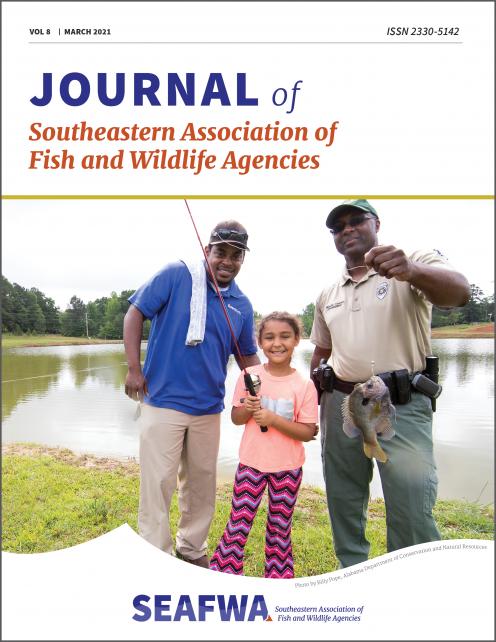James B. Armstrong
Hunter Opinions Regarding Mourning Dove Management on Alabama Public Lands
The importance of public lands for mourning dove (Zenaida macroura) hunting in the Southeast may increase as other dove hunting opportunities decrease. Maximimizing satisfaction of dove hunters on public lands requires knowledge concerning hunter opinions and preferences. We documented dove hunter satisfaction on state Wildlife Management Areas (WMAs) in Alabama with respect to habitat and hunter management. Crops planted were the primary management concern; hunters preferred corn and browntop millet for dove hunting. Most dove hunters encountered unsafe conditions primarily blamed on...
Using a Toll-free Telephone "Hotline" to Assess Coyote Depredation in Alabama
Depredation to crops and livestock by coyotes (Canis latrans) is a subject of much concern to agricultural producers in Alabama. This concern suggested a need for an efficient mechanism for producers experiencing perceived coyote damage to report losses. We tested a combination self-reporting/field verification technique to determine proportion of coyote damage complaints actually attributable to coyotes, determine species responsible for reported coyote damage, and collect descriptive data on coyote damage in Alabama. A toll-free telephone hotline was established, and calls concerning...
Evaluating Environmental Education Programs
We use a case study to illustrate how challenging it can be to apply rigorous evaluation procedures of environmental education programs in a real world setting. We report here our experiences in conducting 2 major evaluations. In Case Number 1, the identity of the client is not disclosed for reasons that will become obvious. This client was a national, non-profit conservation organization that requested an independent evaluation of an educational program designed for volunteer use. Case Number 2 reviews the evaluation of the Virginia Hunter Education program conducted in the early 1980s....
Gifted Students' Attitudes Toward Endangerment: Some Observations
One hundred and seventeen solutions to endangered species problems were presented by gifted students participating in the Georgia Future Problem Solving Bowl, a competition which encourages students to develop solutions to problems they will encounter in the future. The Nongame/ Endangered Wildlife Staff subjectively evaluated the students' attiutdes on endangerment based on their responses to Bowl questions. Solution responses overemphasized the impact of hunting on endangerment while demonstrating little knowledge of the impact of habitat degradation. Attitudes expressed by students...
